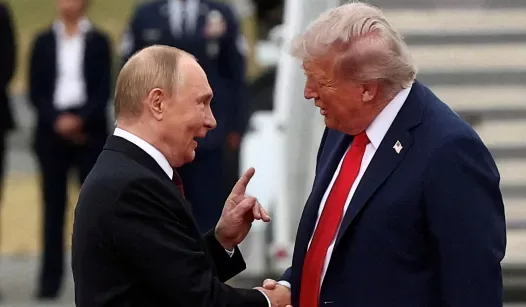In recent months, former President Donald Trump has made headlines with his outspoken views on the ongoing Ukraine war. As the conflict continues to escalate, many are left questioning whether his diplomatic initiatives genuinely serve America’s interests. This article aims to dissect Trump’s approach, examining the potential risks and implications for U.S. foreign policy.
Trump’s rhetoric surrounding the Ukraine war has been characterized by a blend of skepticism toward traditional alliances and a call for a more transactional approach to diplomacy. He has often criticized the Biden administration’s handling of the conflict, arguing that it lacks a clear strategy and fails to prioritize American interests. This perspective resonates with a segment of the American populace that feels disillusioned with the status quo of U.S. foreign policy.
At the core of Trump’s argument is the belief that the United States should not be the world’s police force. He advocates for a reassessment of American military commitments abroad, suggesting that resources could be better allocated to domestic issues. This viewpoint raises important questions: Should the U.S. take a step back from its role in international conflicts? What are the potential consequences of such a shift?
Critics of Trump’s approach warn that disengagement from global conflicts could embolden adversaries and undermine the United States’ credibility on the world stage. The situation in Ukraine is particularly delicate, as it involves not only a struggle for sovereignty but also a broader confrontation with Russia. A perceived lack of American resolve might encourage further aggression from Moscow, potentially destabilizing the region even more.
Moreover, Trump’s emphasis on prioritizing American interests could lead to a more isolationist foreign policy. While many Americans may support the idea of focusing on domestic challenges, the interconnectedness of global politics means that such a stance could have far-reaching consequences. For instance, neglecting international alliances might weaken partnerships that have been built over decades, leaving the U.S. more vulnerable in the face of emerging threats.
Another point of contention is Trump’s approach to diplomacy itself. His style has often been described as unconventional, characterized by direct communication and a willingness to break from established norms. While this has garnered him a loyal following, it also raises concerns about the effectiveness of his strategies. Critics argue that diplomacy requires nuance and patience, qualities that may be sacrificed in favor of a more aggressive, headline-grabbing approach.
As the conflict in Ukraine continues to unfold, it is essential to consider the long-term implications of Trump’s views on U.S. foreign policy. The stakes are high, not only for Ukraine but for the entire international community. The decisions made today will shape the geopolitical landscape for years to come, influencing everything from trade agreements to military alliances.
In conclusion, Trump’s diplomatic efforts regarding the Ukraine war present a complex interplay of risks and rewards. While his call for a reassessment of American involvement in foreign conflicts resonates with many, it also poses significant challenges. As the situation evolves, it is crucial for policymakers and the public alike to engage in thoughtful discourse about the future of U.S. foreign policy and its implications for both national and global security.
